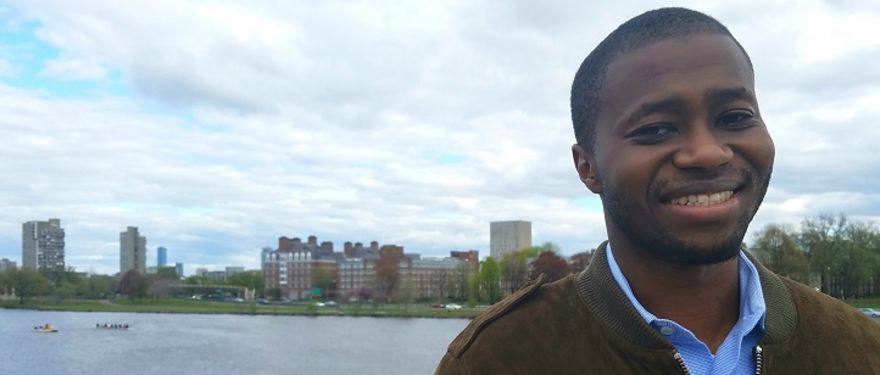I was born and raised in Dakar, Senegal and moved to the United States for high school and college. Upon graduating from Northwestern University, I moved to Dubai and worked as a Management Consultant. I spent five years working with clients across the Middle East and Africa. While working in Nigeria, I realized that I had much more to learn about doing business in my home region.
I applied to Harvard Business School because I thought I would gain skills in finance and management, as well as gain access to an alumni network that would help me launch a business career in Africa.
Arriving at HBS, I was concerned that our classes might not be relevant to the African context – and that I would need to find some other way of learning more about the continent and issues I cared about.
Thankfully, I could apply the lessons from HBS classes to challenges that I expected to face in my career.
It is true that many cases we study take place in developed economies. But what I remember about those cases are lessons for how to make business decisions that apply anywhere. There were many moments where I felt “this is definitely a situation I experienced when I was working in Africa.”
For example, in my first semester Technology and Operations Management class where we studied a New Zealand yacht racing case, I used my experience from doing a churn reduction model for a South African Telecom operator to recommend whether the protagonist should test one or two boats at a time. During business school I found the key is to stay connected to the continent and its realities, and to critically think about the relevance of each case in the African context.
Additionally, I learned a lot more about Africa while at HBS than I expected to. Through trips, student organizations, and class projects, I obtained both practical and theoretical understanding of the challenges and opportunities on the continent.
In my first year, I traveled to Morocco for my FIELD Global Immersion and learned about doing business there through a mixture of research and an on the ground client project. Our team spent several days in Casablanca interviewing local consumers about their furniture shopping experience and helped the client create a strategy to compete against IKEA in Morocco.
This experience allowed me to learn about the country, its culture, business environment, and its similarities and differences with Senegal. I also co-led a trek to Namibia with a Namibian classmate and we took 75 HBS students and partners there during spring break. We got to meet the First Lady of Namibia, business leaders, and traveled across the scenic country. For many people, it was their first time on the continent and the trip allowed them to see the country from a local’s perspective.
In my second year, I worked with classmates on projects ranging from solar energy in Kenya and Tanzania, to an economic development plan of Ethiopia, to a real estate business plan in Senegal.
The community for Africans at HBS also congregates in the Africa Business Club. It boasts over 100 committed members who are passionate about the continent. The club also puts together the annual African Business Conference, the largest student-run conference on campus, attended by ~1,400 participants every year. As a student, I was very involved with ABC and the Conference.
In my second year, I had the chance to lead the New Venture Competition. We selected 10 finalists to pitch during the Conference and awarded $15,000 in cash prizes. This experience allowed me to meet so many inspiring entrepreneurs from the continent and provided a tremendous networking opportunity as well.
HBS has changed the way I perceive my home. Although I had long identified as Senegalese, I am now more comfortable considering myself pan-African. I met and worked with classmates from multiple geographies and cultures in Africa, and I now feel more prepared to play a role in the future of my own country and region.
So, to any prospective African students who are concerned about applying to HBS, I recommend to visit a class, attend a local HBS sponsored event or webinar, and connect with current students and alumni. Then determine for HBS is a good fit for you and just go for it.

